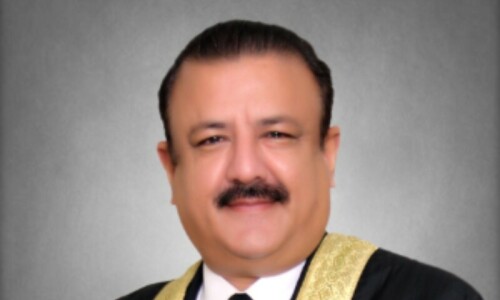
DISILLUSIONED with the 13-year rule of the Conservative Party resulting in high inflation and economic worries, voters in the United Kingdom returned the Labour Party to power with a thumping majority that condemned the Tories to their worst-ever electoral defeat.
The smooth conduct of the polls in the UK contrasted glaringly with parliamen- tary elections in Pakistan that were held earlier this year and whose results are still being challenged in the courts.
The elections in the two countries serve as crucial events that determine the course of governance in their respective domains. Even though they share the foundational principle of democratic elections, their electoral processes show some notable differences in terms of their structures, procedures and political contexts.
With a population of around 60 million, the party with the majority of seats in the 650-seat House of Commons forms the government, typically led by the party leader. Conversely, having a population of some 230 million, Pakistan has a mixed electoral system. This includes 266 directly elected seats, 60 seats that have been reserved for women, and 10 seats for religious minorities. Together, the 336 seats constitute the National Assembly.
While the UK has a stable political system dominated historically by the Conservative and Labour parties, Pakistan has a more volatile political landscape, featuring numerous parties and military interventions. Political parties in Pakistan often form alliances to secure majority support, adding complexity to the electoral dynamics.
Moreover, pre-election campaigning in the UK involves debates, televised speeches, as well as extensive media coverage, with parties relying on manifestos to outline policies. In contrast, Pakistan’s elections see vibrant street rallies with intense media campaigns in shaping the public opinion.
The UK typically experiences a high voter turnout, aided by a strong tradition of civic engagement and accessible polling stations. Pakistan faces challenges, such as voter apathy in some regions, logistical issues, and security concerns. This affects turnout rates. The UK also boasts a robust electoral administration system, overseen by an independent electoral commission, ensuring fairness and transparency. In Pakistan, challenges relate to electoral management, including allegations of irregularities and electoral fraud.
In essence, what Pakistan may learn from the UK is how to navigate its democratic journey based on free and fair elections that reflect the true aspirations of the voters without undue interference from non-political entities.
Fawad Hashmey
Lahore
Published in Dawn, July 21st, 2024











































Dear visitor, the comments section is undergoing an overhaul and will return soon.